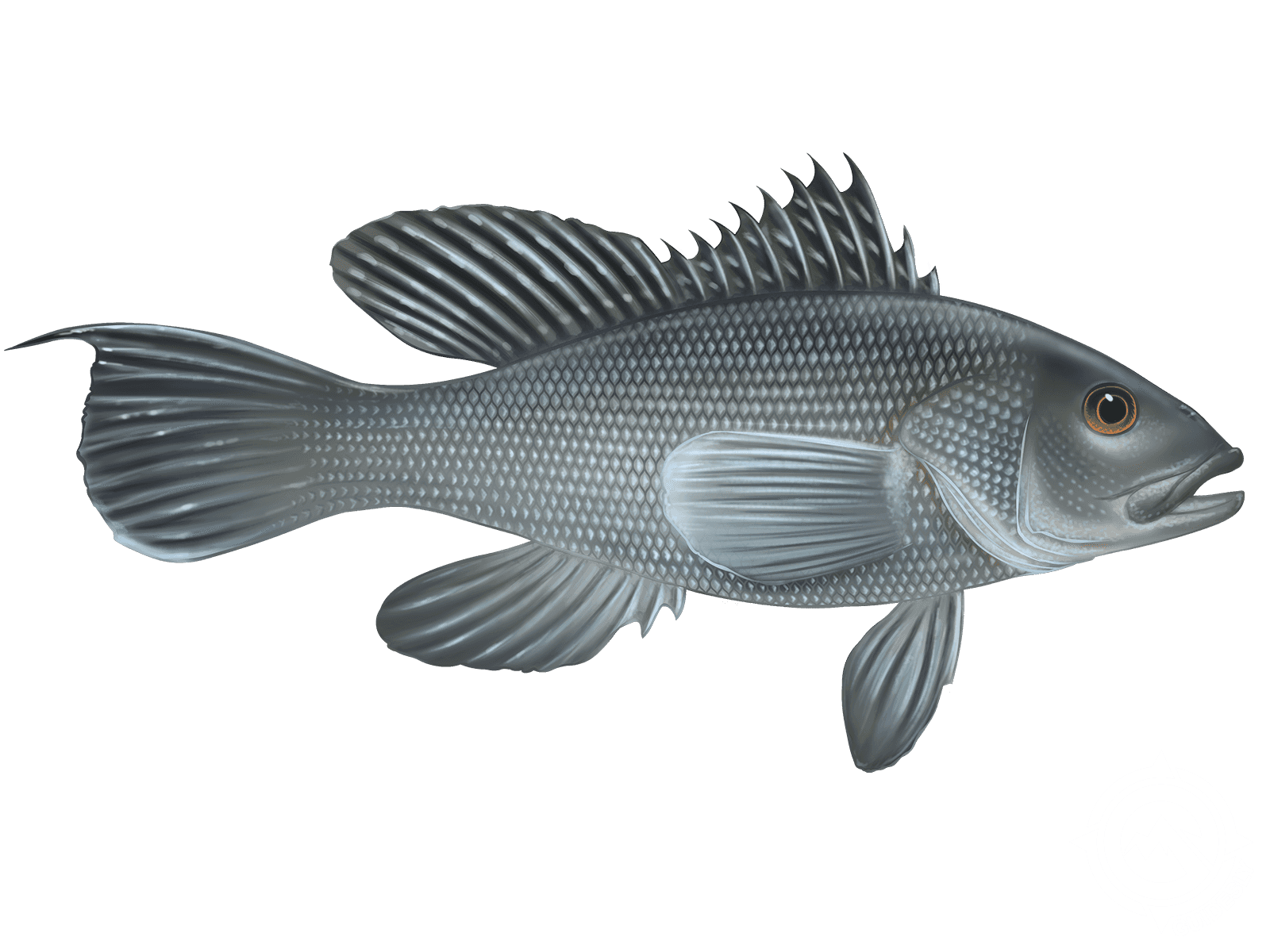Sea Bass

Species Details
Centropristis Striata
Serranidae
Perciformes
Onshore, Nearshore, Offshore, Reef, Wreck
2 - 9 lbs.
10" - 26"
Sea Bass (Centropristis Striata) Fish Description
Commonly known as the Black Seabass, the Seabass is a popular fish. It has an elongated body and can appear flat from the front view. The Seabass has jet-black scales and a grayish underbelly. They also have a large mouth with bands of teeth that line the jaw and have a patch of teeth on their mouth roof.
Their fins may sometimes have black flecks on them, but most of the time, the Seabass’s fins are dark gray, almost turning black. Their dorsal fin has 10 spines, with two of its frontmost spines being the largest. In between those spines, 11 rays are deeply interconnected by a membrane.
Size
The average size of a Sea Bass is around 1 ft and weighs 9 pounds. The biggest Sea Bass caught was around 26 inches.
Diet
Sea Bass are carnivorous. They are known to eat anything they come across. However, their favorites include shrimp, crab, worm, small fish, and clams. With their sharp teeth, they can shred the meat off a chicken bone.
Interesting Facts about the Sea Bass
- Sea Bass is a delicious fish commonly served in high-end restaurants.
- They spawn in coastal areas from January through July.
- Sea Bass are not bred through aquaculture, and because of that, it makes them more expensive.
- They travel in schools,, especially when hunting food.
Fishing Techniques: How to Fish for a Sea Bass
When fishing for Sea Bass, use a 6 ½’ to 7’ rod with a light, sensitive tip and capable for 15- to 30-pound line. Match this with a small swivel or spinning reel followed by a 3’ to 4’ of 40-pound-test fluorocarbon leader with a 20- to 30-pound braided line. Braid is a good choice for this type of fishing because it is sturdy and has no stretch to it, making it easier to feel the jig touching the bottom and any bites. Braid is also thinner than mono, so it’s less affected by the water current.
Sea Bass are aggressive feeders, and since crustaceans and mollusks are a staple in their diet, fishing with cut baits such as squid or clams is a good way targeting them. Even so, more anglers are switching over to artificial bait with much success. Soft plastic jigs, bucktails, lipless crankbaits, along with metal spoons will work well.
Habitat and Distribution
They live at the hard-bottomed ocean floor near jetties, wrecks and reefs.
Sea Bass are mainly found from Massachusetts to Florida, but you may find them as far north as Maine and south into the Gulf of Mexico. They are only found in the ocean.







